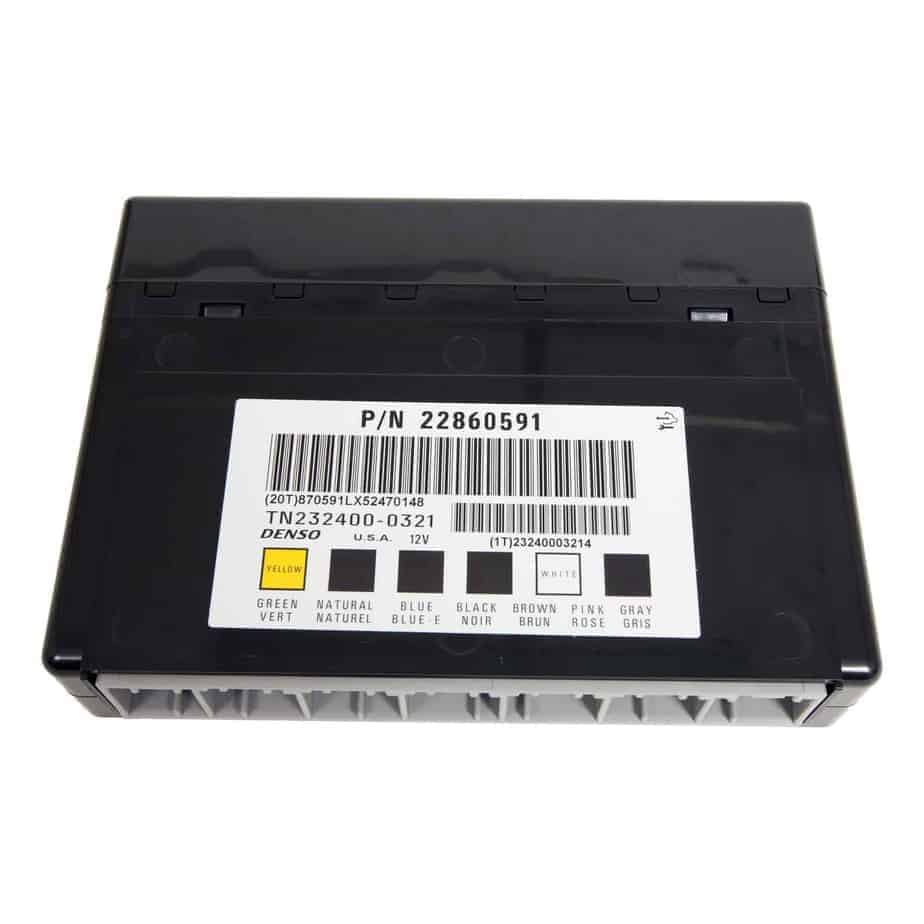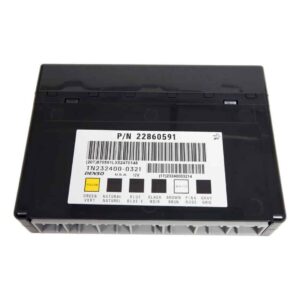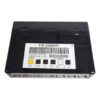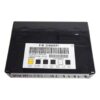Tired of Electrical Gremlins in Your 2010 Avalanche?
If your 2010 Chevrolet Avalanche 1500 is starting to act haunted—with flickering lights, power windows and locks with a mind of their own, or a security light that won’t turn off—you’re likely dealing with a failing Body Control Module (BCM). As the central hub for your truck’s body electronics, when the BCM goes bad, it can cause a cascade of frustrating and unpredictable problems. Many owners waste time and money chasing individual symptoms, but as a technician with over two decades of experience, I can tell you that a faulty BCM is often the root cause.
This isn’t just a replacement part; it’s a complete, hassle-free solution. We provide a reliable Body Control Module that comes ready for installation, thanks to our professional Cloning Service. Simply provide your vehicle’s VIN during checkout, and our experts will program the module with the latest GM software specific to your truck. This process transfers your vehicle’s essential data, ensuring seamless integration and functionality right out of the box, letting you bypass expensive dealership programming fees and long wait times.
Case Study: A Tricky Diagnosis
A customer brought in his 2010 Tahoe (which shares the same platform as the Avalanche) with a bizarre set of issues. The radio would turn on and off, the driver’s side power window worked intermittently, and occasionally, the truck wouldn’t start, showing only a ‘Service Theft Deterrent System’ message. He’d already replaced the battery and checked fuses. After hooking up my diagnostic scanner, I found multiple communication error codes (U-codes) pointing to the BCM. A visual inspection under the dash revealed evidence of a past water leak from the windshield cowl, which had dripped directly onto the module, causing internal corrosion. Installing a VIN-programmed 2010 Avalanche 1500 Body Control Module like this one restored all functions and got him back on the road the same day.
Is Your Avalanche Showing These Symptoms?
- ✔ Erratic or non-functional power windows, door locks, or interior/exterior lights.
- ✔ The security or anti-theft system light stays on, preventing the engine from starting.
- ✔ Dashboard warning lights appear randomly or stay illuminated.
- ✔ Communication issues with diagnostic scan tools, often showing U-codes like U0140, U0155, or U0164.
- ✔ Wipers, horn, or radio functions fail or operate unexpectedly.
- ✔ A parasitic battery drain that kills your battery overnight.
Your Straightforward BCM Installation Guide
For the confident DIYer, replacing the BCM is a manageable job. The BCM on the 2010 Avalanche is typically located under the driver’s side dashboard, near the steering column.
- Safety First: Always disconnect the negative terminal from your truck’s battery and wait a few minutes before beginning work.
- Access the Module: You may need to remove the lower dash panel or knee bolster to gain clear access to the BCM. It’s a black plastic box with several large electrical connectors.
- Disconnect and Remove: Carefully unplug all wiring harnesses from the old BCM. They have locking tabs that need to be pressed or lifted. Once disconnected, unbolt the module from its mounting bracket.
- Install the New BCM: Mount your new, pre-programmed BCM in the same location and securely reconnect all wiring harnesses. Ensure each plug clicks firmly into place.
- Reconnect Power: Reattach the negative battery terminal.
- Perform Relearns (If Needed): Start the vehicle. Check all functions. If you see an airbag light or have issues with brake lights, follow the post-installation procedures outlined below.
Post-Installation System Relearns
Our cloning service handles the heavy lifting, but some vehicle systems may require a final handshake with the new BCM. This is standard procedure. The most common are:
- Airbag System Sync: If the airbag warning light is on, a ‘Setup SDM Primary Key in BCM’ procedure is needed. This requires a professional-grade scan tool to sync the airbag system with the new BCM.
- Brake Pedal Position Relearn: On some models, a brake pedal position sensor recalibration may be required to ensure brake lights and stability control function correctly.
Disclaimer: Procedures can vary slightly. We always recommend consulting a factory service manual or a qualified technician if you are unsure.
Verified Vehicle Compatibility
This module is a direct-fit, programmed solution for your 2010 Avalanche 1500 Body Control Module and is also compatible with a wide range of other GM vehicles. It replaces part numbers: 10382479, 15093910, 15276271, 15299986, 15819552, 15828601, 15837419, 15872388, 15872421, 15880684, 15921352, 15921353, 15948438, 15948439, 20815898, 20839063, 20864767, 20864768, 20921435, 20921436, 20935349, 22860591, 25826124, 25826125, 25847588, 25847589, 25892622, 25910474, 25934762, 25934763, 95151084.
Frequently Asked Questions
Frequently Asked Questions
How does the VIN programming (cloning) service work?
After you place your order, you will need to provide us with your 17-digit Vehicle Identification Number (VIN). Our technicians use this VIN to access the latest official GM software for your specific vehicle and flash it onto the module before shipping. This ensures the BCM has the correct configuration for your truck’s options and features.
Do I need to send my original BCM to you?
No, you do not need to send us your original module. Our cloning service programs the replacement unit using your VIN. As part of our service, we always return the customer’s original module to them along with the newly programmed unit. We do not keep cores.
Is this a simple plug-and-play installation?
For the most part, yes. Because we program it to your VIN, it eliminates the need for dealership-level programming. However, as noted, certain integrated systems like the airbag (SRS) or brake position sensor may require a simple ‘relearn’ procedure with a pro-level scan tool to fully sync with the new module.
What if I install it and still have problems?
First, double-check all connector plugs to ensure they are fully seated. Second, verify if a relearn procedure is needed. While this BCM resolves the vast majority of electrical issues, it’s important to ensure the root cause was properly diagnosed. A persistent issue could indicate a problem elsewhere, such as a wiring short or a different faulty component.
Will this fix a ‘Service Theft Deterrent System’ message?
Yes, in many cases, a failing BCM is the cause of a false anti-theft activation. By programming the module to your VIN, the security information is correctly matched, which typically resolves this common and frustrating no-start condition.



